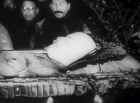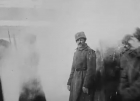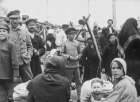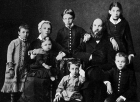World
The modern world cannot be studied without examining the course, impact and legacy of two world wars, the resources in this section set out to look at both the First and Second World Wars in their global context. The section also includes the Cold War and its impact in Latin America, South-East Asia and parts of Africa. This period also sees the rise and fall of European imperialism and the changing nature of global politics and economics as technology brings different stories from so many parts of the world directly to us. Read more
Sort by:
Date (Newest first) | Title A-Z
Show:
All |
Articles |
Podcasts |
Multipage Articles
-

Film: From Khrushchev to Brezhnev
ArticleClick to view -

Film: Brezhnev's early life and career
ArticleClick to view -

Real Lives: Colonel James Skinner
ArticleClick to view -

Film: Lenin's legacy
ArticleClick to view -

Film: Lenin and the Russian Civil War
ArticleClick to view -

Film: Lenin and the birth of Soviet Russia
ArticleClick to view -

Film: Lenin and the 1917 Revolutions
ArticleClick to view -

Film: Lenin, the 1905 Russian Revolution and WWI
ArticleClick to view -

Film: Lenin's early thought
ArticleClick to view -

Film: Lenin's origins
ArticleClick to view -

Film: Khrushchev - Background
ArticleClick to view -

The Olympics - politics, impact and legacy - its not just about the sport
ArticleClick to view -

Film: Yeltsin and the fall of the Soviet Union
ArticleClick to view -

Film: Yeltsin - Early Life
ArticleClick to view -

Film: Yeltsin and Russia in the late 1980s
ArticleClick to view -

Film: Yeltsin's second term and legacy
ArticleClick to view -

Film: Yeltsin's agenda
ArticleClick to view -

Film: Yeltsin and the Oligarchs
ArticleClick to view -

Film: Yeltsin and the West
ArticleClick to view -

Film: Stalin - Interpretations and Legacy
ArticleClick to view

